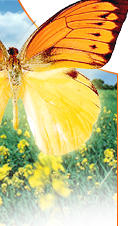From his academic beginning as a cultural historian, Thomas Berry
has evolved over the last thirty years to become a historian of
the earth. He sees himself not as a theologian but as a geologian.
The movement from human history to cosmological history has been
a necessary progression for Berry. In his own lifetime he has
witnessed the emergence of a planetary civilization as cultures
have come in contact around the globe, often for the first time.
At the same time, the very resources for sustaining such a planetary
civilization are being undermined by massive environmental destruction.
Thomas Berry began his academic career as a historian of Western
intellectual history. His thesis at Catholic University on Giambattista
Vico’s philosophy of history was published in 1951. Vico
was trying to establish a science of the study of nations comparable
to what others had done for the study of nature.
Influenced by Vico, Berry has developed a comprehensive historical
perspective in periodization, an understanding of the depths of
contemporary barbarism, and the need for a new mythic wisdom to
extract ourselves from our cultural pathology and deep alienation.
Berry has described contemporary alienation as especially pervasive
due to the power of the technological trance, the myth of progress,
and our own autism in relation to nature. With the New Story and
the Dream of the Earth, Berry hopes to overcome this alienation
and evoke the energies needed to create a viable and sustainable
future. This effort to create a new basis for human-earth relations
he is calling the Great Work.
When Berry set out for China in 1948, he met Wm. Theodore de
Bary on the boat leaving from San Francisco. De Bary was on his
way to China as the first Fulbright scholar of Chinese studies.
Berry intended to study language and Chinese philosophy in Beijing.
Their time in China, while fruitful, was cut short by Mao’s
Communist victory in 1949. After they returned to the States they
worked together to found the Asian Thought and Religion Seminar
at Columbia. Berry’s friendship with Ted and Fanny de Bary
has lasted nearly 50 years. Discussions with Ted spurred Berry’s
interest in Asian religions, especially Confucianism. Likewise,
Fanny has supported Berry’s ecological thought through her
work with the American Teilhard Association of which Berry was
President for the decade of the 1970s.
